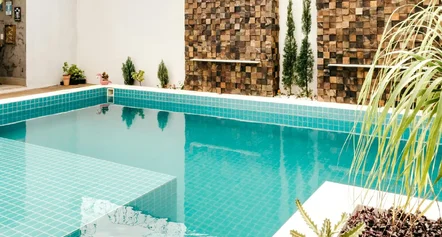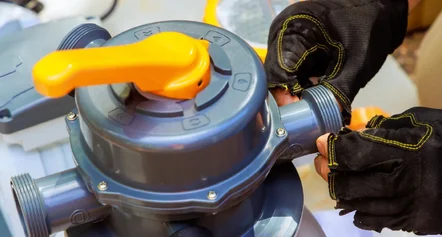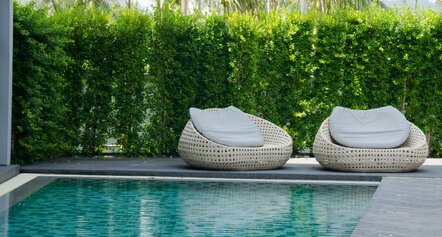With over 3.1 million swimming pools across Australian homes, backyard pools have become a sought-after lifestyle upgrade. They offer a space for relaxation, exercise, and family bonding, making them a popular addition for homeowners. Yet, for many pool owners, one question remains: “Is a saltwater pool or a chlorine pool the better choice for my home?”
Deciding between saltwater pools and chlorine pools isn’t just about personal preference—it’s about understanding their benefits, costs, and maintenance requirements. Saltwater swimming pools, with their gentler water, appeal to those seeking a more natural experience, while traditional chlorine pools remain a reliable and widely used option for clean, clear water.
Choosing the right pool system means balancing convenience, comfort, and long-term maintenance. This article will guide you through a detailed comparison, helping you make an informed decision that suits your family’s needs and lifestyle.
What to Know About Saltwater Pools
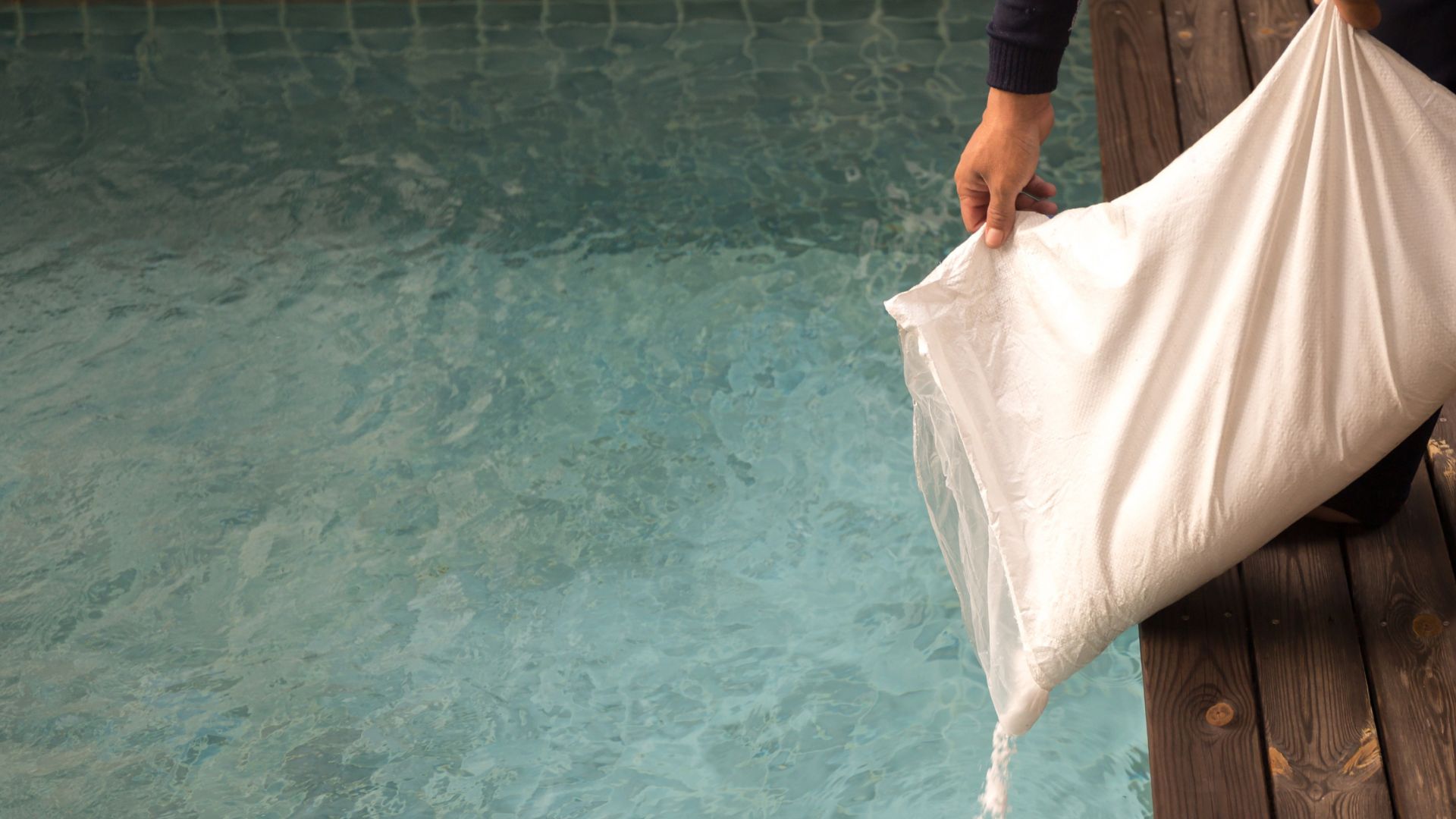
Saltwater pools are becoming popular for homeowners seeking a modern swimming pool experience. They offer a range of benefits, from improved water quality to reduced maintenance needs.
What Is a Saltwater Pool?
Saltwater pools use a saltwater chlorinator and a salt chlorine generator to produce chlorine naturally. Instead of adding chlorine directly, you add salt to the pool water. The salt cell in the chlorinator breaks down the pool salt, creating chlorine to keep the water clean and free from bacteria.
Saltwater swimming pools are known for their softer pool water, which is less harsh on skin, hair, and eyes. This makes them an excellent choice for families with sensitive skin or children.
Salt pools rely less on chemical additives, helping to maintain water quality with fewer harsh substances. This eco-friendly approach appeals to environmentally conscious pool owners.
Cost and Maintenance Considerations
A saltwater system requires a higher upfront cost than traditional pools, as the saltwater chlorinator and salt cell must be installed. Regular maintenance, such as cleaning the salt cell and monitoring salt levels, ensures the system works effectively and lasts longer.
A salt pool isn’t chlorine-free. Saltwater systems still produce chlorine, but more naturally, offering a balanced swimming experience. Understanding this distinction helps pool owners make informed decisions.
Saltwater swimming pools deliver comfort, convenience, and an eco-friendly edge, making them a standout choice for modern homes.
Understanding Chlorine Pools
Traditional chlorine pools remain a familiar and trusted choice among Australian homeowners. Their simplicity and affordability make them a practical option for maintaining swimming pools.
What Is a Traditional Chlorine Pool?
Traditional chlorine pools rely on chemical chlorine added manually or through dispensers to sanitise the water. Chlorinated water kills bacteria, prevents algae growth, and ensures swimming pools remain clean and safe.
Chlorinated pools are often more affordablefor initial setup than other pool systems, making them a popular choice for many Australian households.
Effective Water Maintenance
Chlorine water is highly effective at maintaining water clarity and eliminating harmful microorganisms. Traditional chlorine pools are an excellent option for keeping swimming pools hygienic and visually appealing.
Pool equipment and chemical chlorine products are readily available in local markets, making it easy for pool owners to manage their maintenance needs. This accessibility adds to the appeal of traditional chlorine pools.
Potential Drawbacks
Chlorinated pools can occasionally produce a strong chemical odour, especially if the chlorine levels are too high. Consistent chemical balancing is necessary to avoid irritation to swimmers or damage to pool surfaces. Regular monitoring is crucial to maintaining a safe and comfortable swimming environment.
Traditional chlorine pools provide an effective and accessible way to keep swimming pools clean and functional, ensuring a reliable and affordable choice for many households.
Comparing Maintenance Requirements for Saltwater and Chlorine Pools
Maintaining saltwater and chlorine pools involves different processes and levels of effort. Understanding these differences helps pool owners keep a safe swimming environment.
Saltwater Pool Maintenance
Salt water systems are designed to simplify upkeep, but they still require attention:
- Salt Water Chlorinators: Routine cleaning of the salt water chlorinators and salt cells is essential to prevent build-up and ensure proper functioning.
- Salt Levels: Saltwater pools operate efficiently when salt levels are maintained within the range of 2,700 to 3,400 parts per million (ppm). The optimal level for most systems is approximately 3,200 ppm. Keeping the salt levels within this range ensures the chlorinator functions properly, producing enough chlorine to sanitise the water while providing a comfortable swimming experience.
- Chemical Additions: A saltwater pool requires fewer chemical additions, making it a lower-maintenance option for pool owners.
Chlorine Pool Maintenance
Chlorine pools require regular monitoring and chemical adjustments to maintain water quality:
- Chlorine Additions: Chlorine pools require consistent additions of chlorine tablets or liquid chlorine to sanitise the water.
- Chemical Balancing: The recommended pH level for pools is between 7.2 and 7.6, with 7.4 being optimal for swimmer comfort and effective chlorine disinfection. Stabiliser levels (cyanuric acid) should remain between 30 and 50 ppm, as levels above 100 ppm can cause "chlorine lock," reducing chlorine efficiency. Total alkalinity should be maintained between 80 and 120 ppm to stabilise pH and prevent rapid fluctuations. Regular testing ensures these levels remain within the ideal range.
- Chlorine Gas: Proper handling and storage of chemical chlorine products are essential for safety.
Time and Effort Differences
- Saltwater pool maintenance is often perceived as easier due to the lower frequency of chemical handling.
- Chlorine pools require more frequent attention to chlorine levels and chemical adjustments, leading to increased time and effort.
Tips for Simplifying Pool Maintenance
- Automated pool cleaners can help reduce manual cleaning time.
- Professional pool maintenance services can ensure both saltwater and chlorine pools remain in excellent condition.
- Regular inspections of equipment like salt water chlorinators or filtration systems can extend their lifespan.
- Both saltwater and chlorine pool systems require care, but the methods and effort vary, allowing homeowners to choose the option that best suits their lifestyle.
Costs Associated with Saltwater and Chlorine Pools
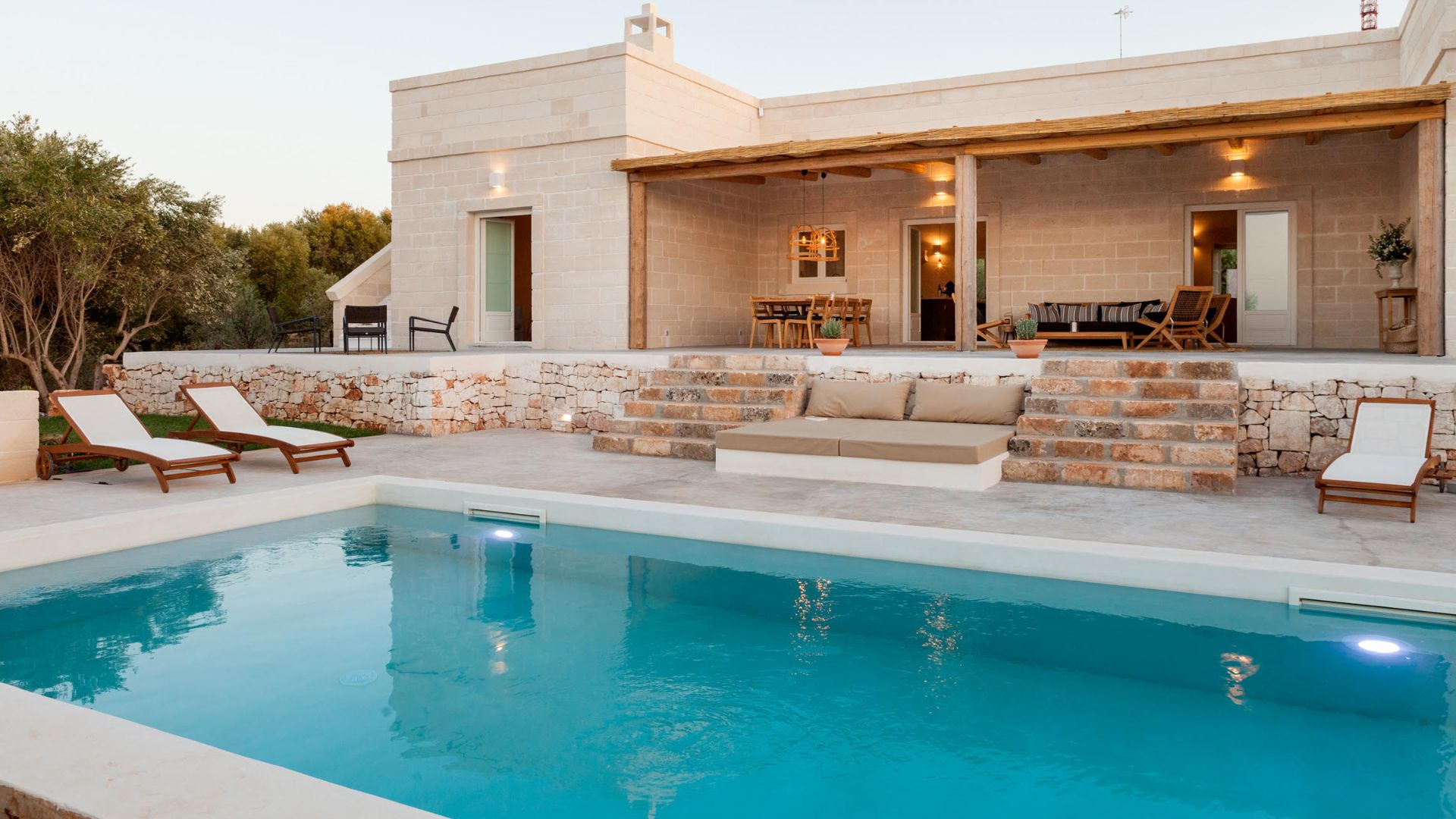
The costs of owning and maintaining a saltwater or chlorine pool can vary significantly. Understanding these expenses helps pool owners choose the right pool for their budget and long-term needs.
Initial Installation Costs
- A saltwater pool typically involves higher upfront costs. Installing a saltwater chlorinator and the associated equipment can range from $2,000 to $2,500.
- A chlorine pool, in comparison, is less costly to set up, with initial installation costs of around $1,500.
Ongoing Maintenance Expenses
Ongoing maintenance expenses for saltwater and chlorine pools in Australia can vary significantly based on pool type, equipment, and size. Understanding these costs ensures proper budgeting for long-term upkeep.
General Pool Maintenance Costs
- Saltwater systems require ordinary salt, which is replenished occasionally. Knowing how much salt to add depends on pool size and evaporation rates. Annual chemical costs for some saltwater pools average around $300.
- Chlorine pools rely on chlorine products, like granules or tablets, to eliminate bacteria and prevent algae growth. These products are needed regularly, and annual chemical costs average $200.
Energy Usage and Equipment Costs
- Saltwater systems use electrolysis to convert salt into chlorine, requiring electricity to power the saltwater chlorinator. This slightly increases energy bills, with monthly pool pump costs ranging from $80 to $110. Over time, saltwater chlorinators may need repairs or replacement, costing between $800 and $1,500.
- Chlorine pools might face long-term costs for replacing liners or addressing damage caused by chemical imbalances.
Heating Costs
- Solar Heating: Approximately $100 to $200 per year
- Electric Heating: Between $250 to $750 annually
- Gas Heating: Ranges from $500 to $1,500 per year
Additional Expenses
- Both systems require regular testing to maintain optimal water quality.
- Depending on pool size and frequency, professional cleaning services may charge between $60 and $150 per visit.
- Investing in the right pool system can save money over time. Saltwater systems may have higher initial costs but lower ongoing maintenance expenses, while chlorine pools offer affordability upfront with steady maintenance needs. Both provide effective solutions for ensuring a clean and enjoyable swimming experience.
Health and Comfort: Choosing the Best Fit
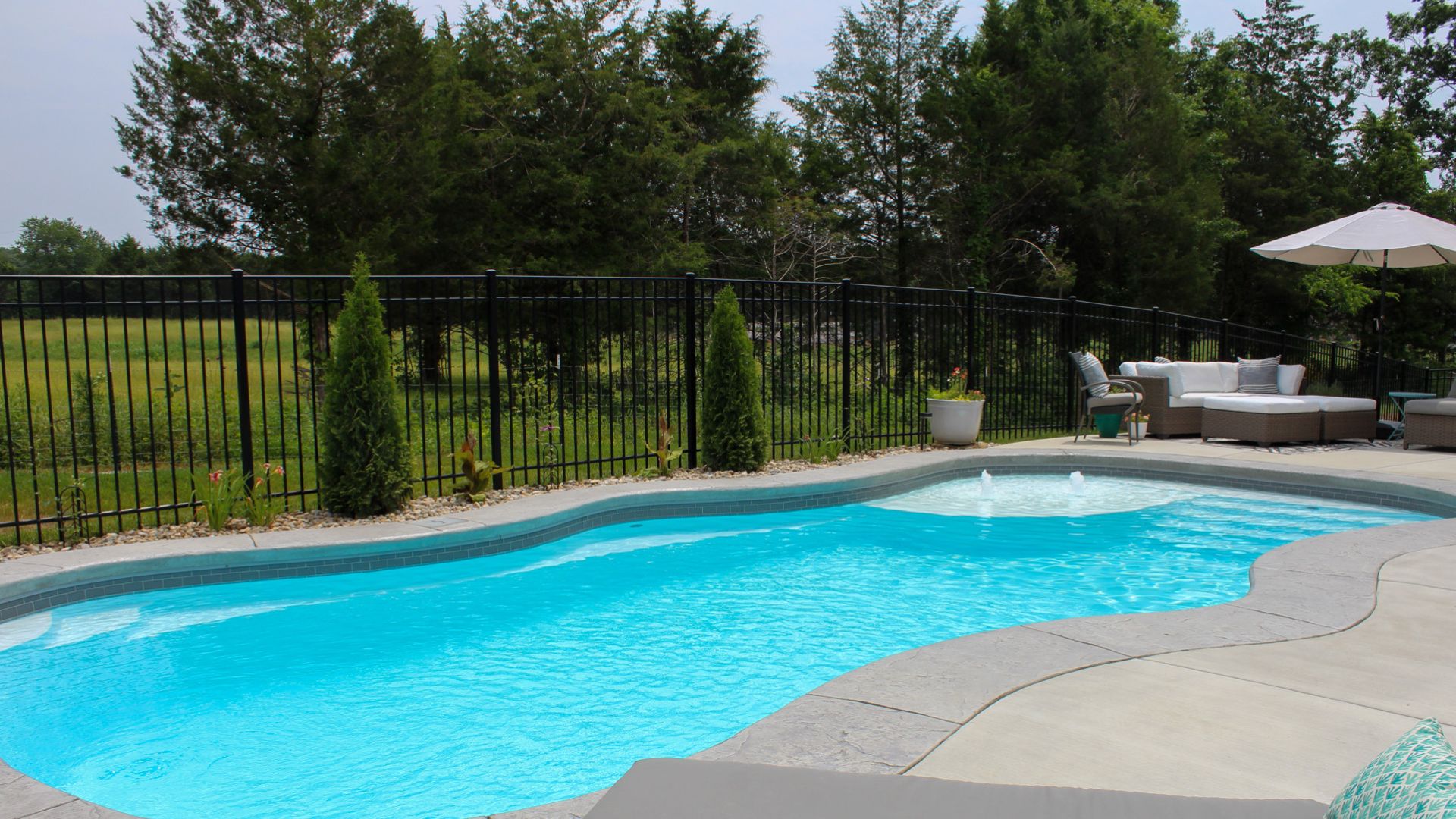
Choosing between pool types often comes down to health and comfort. Both saltwater and chlorine pools offer unique benefits, making them suitable for different needs.
Saltwater Pools and Comfort
Saltwater pools provide a gentle swimming experience, as their water is closer to the salinity of human tears. This makes them ideal for people with sensitive skin or allergies. Sodium hypochlorite, generated through the saltwater system, produces hypochlorous acid for killing bacteria without the strong chlorine smell.
These pools are also gentler on hair and swimwear, reducing wear and tear over time. Families with children or elderly members often appreciate the softer water and less maintenance required for balancing water.
Chlorine Pools and Water Clarity
A well-maintained chlorine pool with clear water, free from calcium deposits and sodium hypochlorite, provides effective sanitisation. However, elevated chlorine levels or improper chemical storage can lead to skin irritation for some swimmers. Chlorine effectively eliminates bacteria but may leave a noticeable chlorine odour.
Suitability for Families
Saltwater pools generally require less maintenance, while chlorine pools demand frequent adjustments to maintain proper chlorine levels. Both pool types can create a backyard oasis, but saltwater pools may offer more comfort for those with health concerns. Balancing these factors helps families choose the best option for their needs.
Making the Right Choice for Your Home
Choosing between saltwater and chlorine pools depends on upfront installation costs, ongoing maintenance, health considerations, and environmental impact. Saltwater systems typically have higher initial expenses but lower maintenance needs, while chlorine pools are more affordable to install but require consistent chemical balancing.
Health concerns, such as sensitive skin or allergies, and the environmental benefits of reduced chemical use in saltwater systems should also be considered.
Assessing your long-term goals, including budget and the swimming experience you desire, is crucial. Personal preferences and lifestyle needs are significant in making the right decision. Consulting professionalscan help evaluate your requirements and guide you to the best choice.
Flamingo Pools is a trusted expert in saltwater pool services, dedicated to helping homeowners create the ultimate backyard oasis. Our team specialises in designing, installing, and maintaining saltwater pools tailored to individual needs. Contact Flamingo Pools for professional advice and assistance choosing the perfect pool system for your home.


